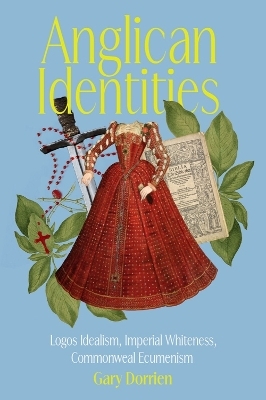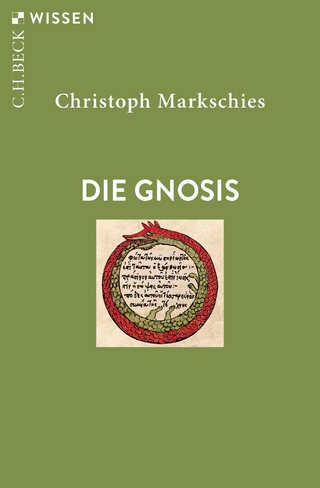
Anglican Identities
Logos Idealism, Imperial Whiteness, Commonweal Ecumenism
Seiten
2024
Baylor University Press (Verlag)
978-1-4813-2093-1 (ISBN)
Baylor University Press (Verlag)
978-1-4813-2093-1 (ISBN)
The Anglican Communion finds itself at an inflection point as it weighs its future prospects in light of discordant social, political, ecclesiological, and theological commitments. This intellectual and political history of Anglicanism shows that the Communion’s present challenges are the upshot of a centuries-old clash of Anglican identities.
The Anglican Communion currently finds itself at an inflection point as it weighs its future prospects in light of discordant social, political, ecclesiological, and theological commitments. In this intellectual and political history of Anglicanism, Gary Dorrien shows that the Communion's present challenges are the upshot of a centuries-old clash of Anglican identities. Tracing the narrative of Anglicanism from its ancient and medieval origins through the English Reformation and up to the last quarter of the twentieth century, Dorrien argues that Anglican Christianity is at once an ecumenical project, residing at the halfway point between Roman Catholicism and Protestantism, a theological movement informed by a brand of idealism centered in the incarnational faith of Logos theology, and an imperial enterprise complicit in the racist sickness of Western civilization.
A book long in the making, Anglican Identities offers a comprehensive, informative, and sobering account of the story of Anglicanism. Dorrien covers the key figures, periods, movements, and theological concerns from the Communion's history, framing them in an interpretation of Anglican Christianity informed by decades in the classroom and his unique liberal-liberationist and activist reading of theology, ethics, and philosophy of religion.
Dorrien contends that Anglicanism has been sort-of ecumenical from the beginning, with a radical ecumenical aspirational vision, and in its liturgies and teachings has embodied and enacted an idealist approach to the claims of the Christian theological tradition. But Dorrien urges that these features of the Anglican story are deeply at odds with English Anglicanism's entanglement with white colonialism. Indeed, in Dorrien's telling, this antinomy between its identity as an ecumenically generous religion of the incarnate Logos and its willing involvement in white supremacy is at the very heart of Anglican Christianity.
The Anglican Communion currently finds itself at an inflection point as it weighs its future prospects in light of discordant social, political, ecclesiological, and theological commitments. In this intellectual and political history of Anglicanism, Gary Dorrien shows that the Communion's present challenges are the upshot of a centuries-old clash of Anglican identities. Tracing the narrative of Anglicanism from its ancient and medieval origins through the English Reformation and up to the last quarter of the twentieth century, Dorrien argues that Anglican Christianity is at once an ecumenical project, residing at the halfway point between Roman Catholicism and Protestantism, a theological movement informed by a brand of idealism centered in the incarnational faith of Logos theology, and an imperial enterprise complicit in the racist sickness of Western civilization.
A book long in the making, Anglican Identities offers a comprehensive, informative, and sobering account of the story of Anglicanism. Dorrien covers the key figures, periods, movements, and theological concerns from the Communion's history, framing them in an interpretation of Anglican Christianity informed by decades in the classroom and his unique liberal-liberationist and activist reading of theology, ethics, and philosophy of religion.
Dorrien contends that Anglicanism has been sort-of ecumenical from the beginning, with a radical ecumenical aspirational vision, and in its liturgies and teachings has embodied and enacted an idealist approach to the claims of the Christian theological tradition. But Dorrien urges that these features of the Anglican story are deeply at odds with English Anglicanism's entanglement with white colonialism. Indeed, in Dorrien's telling, this antinomy between its identity as an ecumenically generous religion of the incarnate Logos and its willing involvement in white supremacy is at the very heart of Anglican Christianity.
Gary Dorrien is Reinhold Niebuhr Professor of Social Ethics at Union Theological Seminary and Professor of Religion at Columbia University. He is also the author of In a Post-Hegelian Spirit: Philosophical Theology as Idealistic Discontent.
Preface and Acknowledgments
1. Introduction: The Anglican Idea
2. English Christianity and English Reformation
3. Proto-Anglican Reason and Empire
4. Caroline Divinity and Lockean Liberalism
5. Enlightenment Reason and Romantic Idealism
6. Catholic Visions and Liberal Crises
7. Renewing Christian Socialism, Anglo-Catholic Style
8. Modernizing the Anglican Mainstream
9. Gospel Catholicism and Process Theology
10. Beyond Colonial Anglicanism
| Erscheinungsdatum | 02.05.2024 |
|---|---|
| Verlagsort | Waco |
| Sprache | englisch |
| Maße | 152 x 229 mm |
| Gewicht | 498 g |
| Themenwelt | Geschichte ► Teilgebiete der Geschichte ► Religionsgeschichte |
| Religion / Theologie ► Christentum ► Kirchengeschichte | |
| ISBN-10 | 1-4813-2093-9 / 1481320939 |
| ISBN-13 | 978-1-4813-2093-1 / 9781481320931 |
| Zustand | Neuware |
| Informationen gemäß Produktsicherheitsverordnung (GPSR) | |
| Haben Sie eine Frage zum Produkt? |
Mehr entdecken
aus dem Bereich
aus dem Bereich
Von den Anfängen bis zur Gegenwart
Buch | Hardcover (2022)
C.H.Beck (Verlag)
34,00 €
warum die Religionen erst im Mittelalter entstanden sind
Buch | Hardcover (2024)
C.H.Beck (Verlag)
38,00 €


